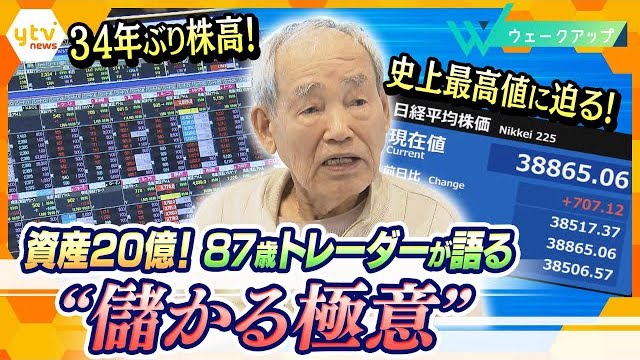TOKYO, Feb 19 (News On Japan) - Known as "Japan's Buffett," 87-year-old day trader Shigeru Fujimoto has amassed a fortune of 2 billion yen. Starting as a pet shop employee and later running a mahjong parlor, Fujimoto became a full-time investor, mastering the art of day trading.

His approach to reading the market and making buy-sell decisions was explored in a close-up interview on a day when the stock market's closing price hit a 34-year high of 38,000 yen.
Fujimoto, who has been trading stocks since he was 19, continues to engage in day trading, securing profits within the same day. On a typical trading day, he successfully sold stocks at a higher price, earning a profit of ¥147,000. He explained his strategy of buying low and selling high or vice versa to capitalize on market movements.
The stock market that day showed signs of change, with an increase in buying activity. Fujimoto noted that the current stock market rise is influenced by various factors, including forest differences, attracting both domestic and foreign investors.
With 68 years of investment experience, Fujimoto shared that there is no fixed timing for buying stocks to make a profit. He emphasized the importance of continuous learning and monitoring financial indicators like sales growth, profit growth, and dividend increases.
Fujimoto pays close attention to indicators like the Relative Strength Index (RSI), which helps him gauge the momentum of a stock's rise or fall. He uses RSI, among other tools, to make informed investment decisions.
Despite the risks associated with stock trading, Fujimoto remains committed to his daily trading routine, steadily growing his assets to ¥2 billion. When asked about his future goals, he expressed his intention to continue trading for the rest of his life, driven by his passion for the market.
The interview also touched on the broader economic context, including the impact of the stock market's performance on wages and the challenges faced by small and medium-sized enterprises (SMEs) in raising salaries. The article highlighted the importance of creating an environment conducive to wage increases, especially for SMEs, which make up 70% of the workforce.
Source: YOMIURI















